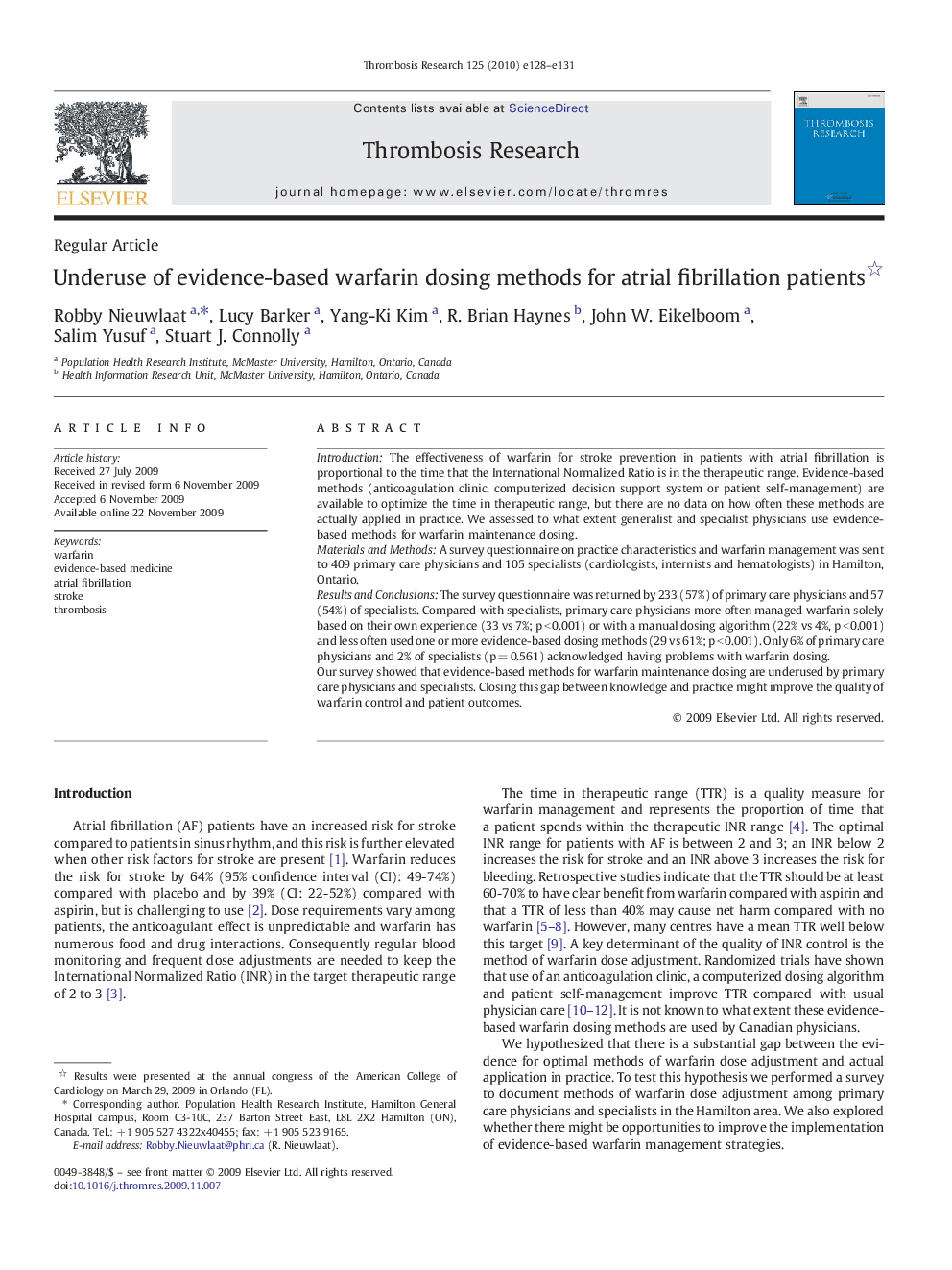| Article ID | Journal | Published Year | Pages | File Type |
|---|---|---|---|---|
| 3027911 | Thrombosis Research | 2010 | 4 Pages |
IntroductionThe effectiveness of warfarin for stroke prevention in patients with atrial fibrillation is proportional to the time that the International Normalized Ratio is in the therapeutic range. Evidence-based methods (anticoagulation clinic, computerized decision support system or patient self-management) are available to optimize the time in therapeutic range, but there are no data on how often these methods are actually applied in practice. We assessed to what extent generalist and specialist physicians use evidence-based methods for warfarin maintenance dosing.Materials and MethodsA survey questionnaire on practice characteristics and warfarin management was sent to 409 primary care physicians and 105 specialists (cardiologists, internists and hematologists) in Hamilton, Ontario.Results and ConclusionsThe survey questionnaire was returned by 233 (57%) of primary care physicians and 57 (54%) of specialists. Compared with specialists, primary care physicians more often managed warfarin solely based on their own experience (33 vs 7%; p < 0.001) or with a manual dosing algorithm (22% vs 4%, p < 0.001) and less often used one or more evidence-based dosing methods (29 vs 61%; p < 0.001). Only 6% of primary care physicians and 2% of specialists (p = 0.561) acknowledged having problems with warfarin dosing.Our survey showed that evidence-based methods for warfarin maintenance dosing are underused by primary care physicians and specialists. Closing this gap between knowledge and practice might improve the quality of warfarin control and patient outcomes.
